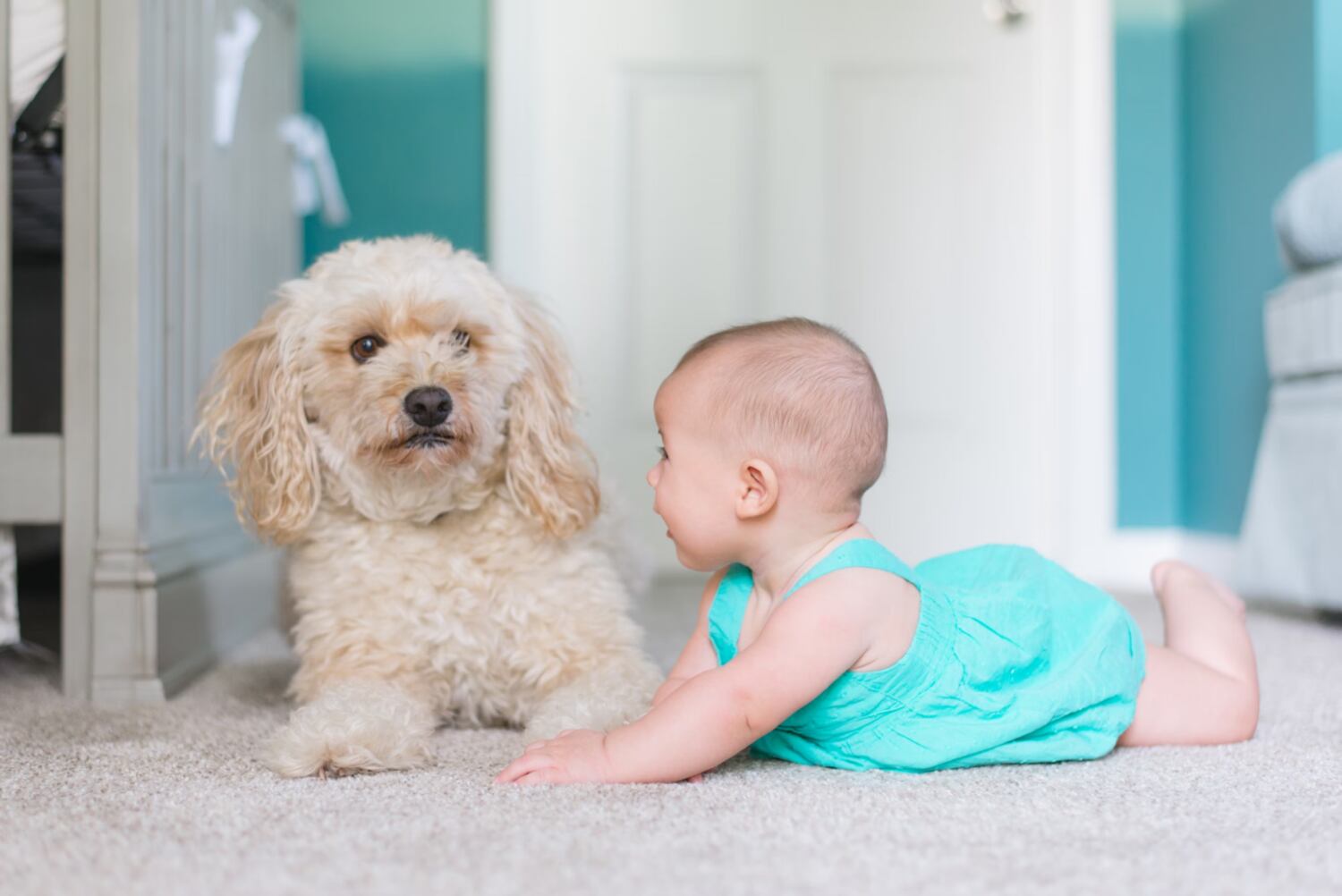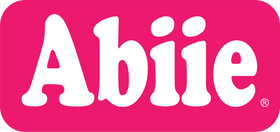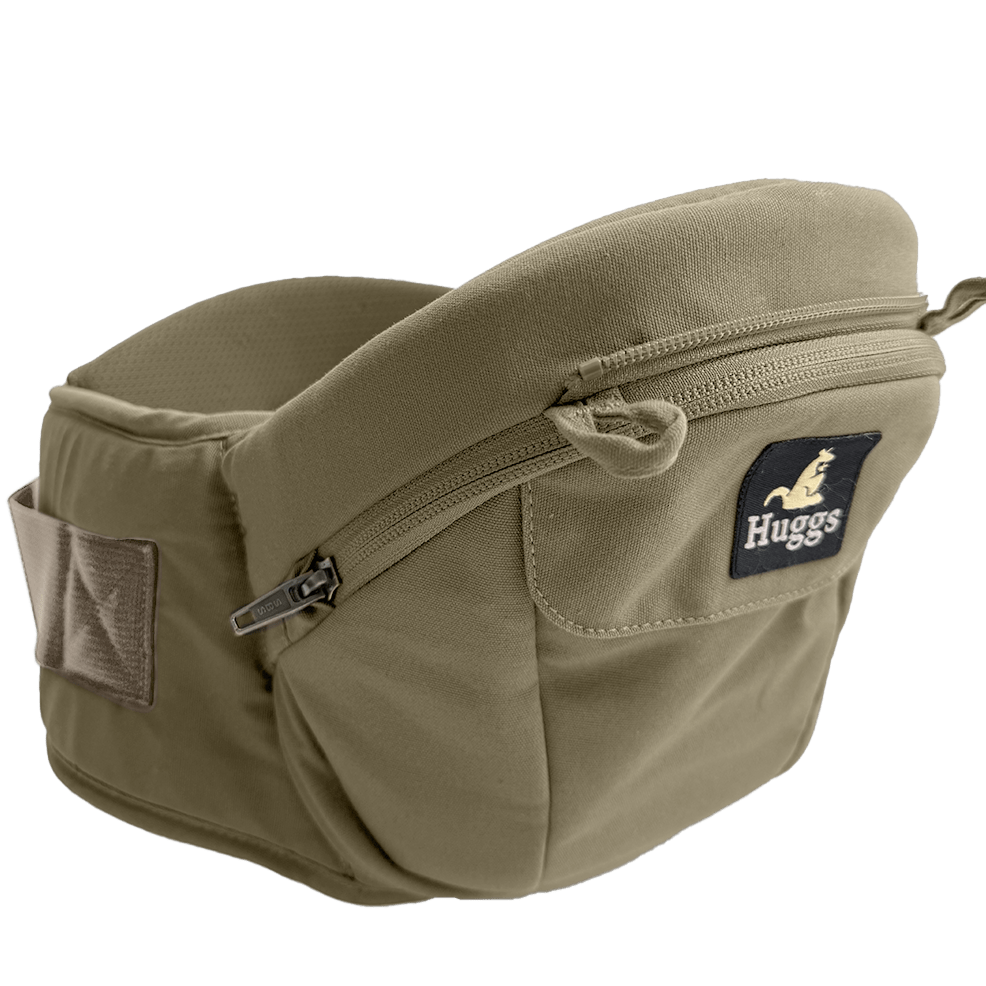Dogs and Babies: How to Introduce Your Best Friend to Your Little One

It’s been said so much that you’ve probably heard it somewhere, but a dog is a man’s best friend. Through tough times, and through happier times, they are always there for you. On the other hand, welcoming a new baby into your home is a wonderful and happy event, but it can also bring added concerns. How will your beloved dog, a part of your family, react to your baby?
Making sure that there’s a smooth transition is key to fostering a safe and loving relationship. Here’s how you can help dogs and babies be best friends:
Understanding Your Dog’s Point of View
Before making introductions, you have to consider the dog’s perspective first. Dogs are nothing if not creatures of habit, and they tend to thrive on routine. The introduction of a baby can definitely disrupt their environment and daily schedule. It can even cause stress and anxiety. Understanding that your best friend can feel confused or jealous of the attention being given to your baby is essential.
Before your baby arrives, it’s time to introduce changes to your dog’s routine. Start by adjusting feeding times, changing walking schedules, and changing daily activities to match what your new routine with the baby will look like. This can help minimize the shock of sudden changes once the baby gets home.
Familiarize your dog with the sounds, smells, and messes that will come with a baby. Play a recording of baby cries and introduce baby-scented items. Introduce a high chair in the dining room, and drop food scraps (as would happen when the baby gets there). It can help your dog become used to new sensory experiences that will become normal when the baby arrives.
When introducing dogs and babies, it’s time to reinforce basic obedience commands such as sit, stay, and leave it. A well-behaved dog will give you peace of mind and will respond well to a baby. If you’re unsure about introducing your furry friend to your infant, it might be time to consider professional training to address behavioral issues.
Preparing for The First Introduction
The introduction of dog to baby can set the tone for all their future interactions. Careful planning and supervision are key to making sure everyone has a positive experience. Choose a quiet, controlled environment where the atmosphere will remain calm throughout. It will help you separate your dogs and babies if needed.
It would be ideal if you kept your dog on a leash during the first meeting, just to maintain control. Ensure that your dog is calm and relaxed. Allow your canine friend to approach the baby slowly and at their own pace. It’s best not to force interaction, after all, you can’t force two different individuals to become friends, can you? Praise and reward calm behavior with dogs and babies to ensure that it goes smoothly.
Ensuring Supervision and Safety
When you’re introducing a dog to a baby, constant supervision at first is essential. It will help both dogs and babies feel comfortable and secure. Never leave your baby and any animal alone together, even for a minute. Babies make sudden movements that can startle or even provoke your canine friend.
It’s ideal to create safe spaces for your baby and dog. Baby gates and playpens can help establish boundaries. In instances where your baby is on a high chair and drops food off the table, your dog might linger around for scraps. This can actually help positively impact your dog and baby’s relationship, so it might be helpful not to berate your dog about it.
Maintain a consistent routine for your dog to reduce anxiety and promote a sense of stability. Regular feeding, walking, and playtime are also essential for both your dog’s and baby’s routine. Learn to read your dog’s body language so you can understand where their comfort level is and prevent any issues from arising. Signs of stress can include yawning, lip licking, and avoiding eye contact.

Building a Strong Relationship
Encouraging a strong and positive relationship between dogs and babies can take time. You can’t assume that introducing a dog to a baby will automatically make them best friends. You should keep in mind to encourage gentle interactions and reinforce good behavior so trust and friendship can be built.
Try to include your dog in family activities, especially when involving the baby. Dogs tend to clean up after babies, and this might even end up being useful for you. Allow your dog to be present during feeding, playtime, and walks. It will help your dog feel included while strengthening their bond with the baby.
Create positive experiences for both dog and baby. Play games, and offer treats frequently. Allowing your dog to be around at times when your baby will need clean-up afterward (especially during solid food feeding times) will help solidify this bond. The way to any dog’s heart is definitely through their stomach!
Handling Challenges
Sometimes, even when you try your best, challenges might come up when introducing dogs and babies. For introductions, it’s important you know how to proactively address any challenges that might come up. Initially, your dog might feel neglected or jealous. Ensure you spend one-on-one time with your dog every day to reassure them of their importance.
Babies can be loud, and dogs can be sensitive. Gradually desensitize your dog to baby sounds and provide a quiet space where they can retreat when the need arises.
Best Friends with Abiie
Dogs and babies can be best friends, you just need to provide good opportunities for that to happen. And what’s better than your dog getting extra treats during your baby’s feeding time? With Abiie®’s Beyond Junior® Y High Chair, you can make sure both your baby and dog have the best time when baby food is being served. Shop from our catalog of sustainable baby items that elevate the aesthetic and functionality of your home, especially for your baby!

 US
US
 Canada
Canada
 Japan
Japan
 European Union
European Union
 Taiwan
Taiwan
 Malaysia
Malaysia
 Singapore
Singapore




